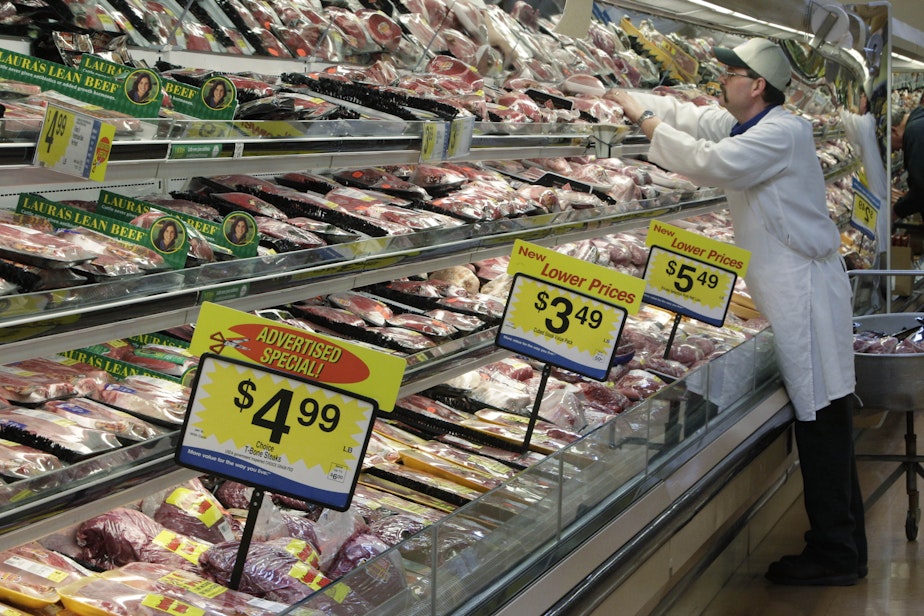The FTC sued to block the Kroger-Albertsons merger. Now what?

The Federal Trade Commission and attorneys general for eight states and the District of Columbia are suing in an attempt to stop the merger of Kroger and Albertsons, the country's two largest grocery store companies. Federal and state officials argue the merger would "eliminate fierce competition" for both shoppers and workers, and lead to higher grocery prices.
The lawsuit, filed in federal court in Oregon on Monday, was filed in tandem with an in-house administrative complaint issued by the FTC. Proceedings for that complaint are still pending.
Douglas Ross, an antitrust law professor at the University of Washington, said the FTC's course of action stands out, noting that it appears Kroger and Albertsons would not agree to halting the $24.6 billion deal — the largest in U.S. history — pending the FTC's in-house proceedings.
"The FTC said, 'We now have no choice but to go into federal court and ask for a preliminary injunction stopping the merger while we go back to D.C. and litigate the merits,'" Ross explained.
Part of the merger agreement includes selling off more than 400 stores in various states, including 104 in Washington. Whether that would be enough to create a competitive market is one key issue, Ross said.
RELATED: Washington state sues to block Kroger-Albertsons merger
“The second issue, and this is probably more important, is whether or not the company that’s going to acquire these stores, C&S, is positioned to be as vigorous a competitor as Albertsons was,” Ross said.
In its complaint, the FTC says C&S Wholesale Grocers lacks the assets to compete against the merged companies. It also contends the merger would harm workers and affect their ability to negotiate better collective bargaining agreement terms.
“It’s not the kind of claim that they’ve made in the past when they attack grocery store mergers,” Ross said. “I think it complicates [the FTC's] case.”
A coalition of unions representing grocery workers applaud the move.
“We’ve been opposed to it since day one,” said Faye Guenther, president of UFCW Local 3000 in Washington. “It’s not good for consumers, it’s not good for workers, it’s not good for farmers. It’s not good for anybody up and down the supply chain.”
Kroger and Albertsons say the merger is necessary to survive the changing grocery landscape. An Albertsons spokesperson said that Walmart's market share alone is roughly twice the size of a combined Kroger-Albertsons before divestitures. The spokesperson argued that blocking the merger would make it more likely that consumers will see higher food prices.
Attorneys general from the District of Columbia and eight states, including Oregon and California, have joined the FTC suit.
Washington and Colorado have filed separate lawsuits in state courts.

